
Information to change the world | |
Find Topics, Titles, Names related to your query |

Information to change the world | |
Find Topics, Titles, Names related to your query |
|
|
Other VoicesThe Connexions Newsletter
|

Other Voices December 21, 2025 |
Solstice 2025 It is the Winter Solstice in the northern hemisphere. Other Voices suggests it is a time to go outside and appreciate what nature has to offer, such as tree buds and chickadees. Other content includes a look at the so-called ‘Cloud’ where so much of our data resides, articles about our rulers’ attempts to prevent us from knowing and communicating about genocide in Gaza, and the depravity of online platforms which enable users to bet on, and profit from, war and death. |

Other Voices November 11, 2025 |
Let’s go easy on self-righteousness The November 11, 2025 issue of Connexions Other Voices newsletter ranges over a number of topics, including self-righteousness, hot air about 'projected' emission reductions while real emissions keep rising, Europe’s self-destructive political and economic policies, the prospects for deradicalizing Israel, the future of a world dominated by AI, King Charles’ association with pedophiles, the justification for civil disobedience when democracy no longer works, and ideas for changing the CBC and extricating it from the dead end it has ended up in. |

Other Voices August 25, 2025 |
In the heat of the summer An appalling scramble by politicians to approve new fossil-fuel projects is happening just as feedback effects from wildfires stoke climate catastrophe. The same disregard for climate consequences that has been shown in respect of previous fossil-fuel production and its legacy, is readily apparent as the Canadian government and its provincial counterparts prepare to dramatically increase oil and gas extraction and export in the period ahead. |

Other Voices July 26, 2025 |
We can’t look away It has always been one of the goals of this newsletter to present a variety of items, about different topics, and not only serious articles about the problems facing us, but also hopeful and sometimes lighthearted or funny items. We recognize that a steady diet of serious and depressing articles can be demoralizing, and actually make it more difficult for us to summon the energy to act constructively. If achieving some kind of balance is the goal, this newsletter must be judged a failure. We are in the midst of a genocide. What else can this newsletter be about? We can’t look away, we can’t turn away. This newsletter, almost all of it, is about Gaza. We wish it didn’t have to be. |

Other Voices June 21, 2025 |
Artificial Intelligence What is artificial intelligence and and why does it exist? The marketing paints pictures of benefits of all kinds. Some of those benefits are real, but there are also substantial negatives. For example, there are massive environmental costs, and some profoundly concerning effects on education. Many of the cutting-edge developments in AI consist of developing new and more efficient ways to kill people (e.g. self-targeting drones, smart bombs) and increased surveillance in the interests of increased state control and suppression of dissent. This newsletter looks at some of the dimensions of artificial intelligence. |

Other Voices April 14, 2025 |
Another Spring This newsletter, as always, is about what is happening in the world, and that – that can wear down even the most resilient spirit. Sorry. But where there is life, there is hope, and this newsletter is about hope too. Also: Connexions is looking for photos for Connexions’ Getting the Word Out project, an online exhibit funded by Digital Museums Canada (an arm of the Canadian Museum of History). The project focuses on the question of “how did activists organize before the Internet?” We’d love to feature photos, many photos, and for that we need your help. You can contact Connexions via the Contact page. |

Other Voices March 9, 2025 |
Challenges and Opportunities We are faced with an uncertain future which will undoubtedly bring a whole array of challenges. But the upheavals that lie before us, internationally and in our own country, will also present us with new opportunities. It is no longer possible to claim that ‘there is no alternative.’ On the contrary, new alternatives are precisely what we have to create. We have to learn to talk together, figure out what we share, and live with differences on some issues. To change the world, we also have to change ourselves. |

Other Voices February 8, 2025 |
Time to Talk? If we want to change the world, we need other people – millions, eventually hundreds of millions of others – to agree that the world needs changing and to join us in changing it. We need to persuade a majority of the population that a fundamental social and economic transformation is necessary and desirable. That’s easier said than done. What do we say, and who do we talk to? This newsletter offers tenative explorations of some of those issues. |

Other Voices November 9, 2024 |
This Moment This issue takes its theme from Anne Frank, who wrote: “How wonderful it is that nobody need wait a single moment before starting to improve the world.” In discouraging times, those of us who have been working to improve the world need to try to remember that this is the moment when we need to keep trying, despite the odds. Two other quotes from Anne Frank set the tone of the newsletter: “I’ve found that there is always some beauty left – in nature, sunshine, freedom, in yourself; these can all help you.” It’s really a wonder that I haven’t dropped all my ideals, because they seem so absurd and impossible to carry out. Yet I keep them, because in spite of everything, I still believe that people are really good at heart.” |

Other Voices October 5, 2024 |
Everything is Under Control. Until it Isn’t. In the nuclear age, a miscalculation can result in unspeakable catastrophe, but nonetheless, decision-makers continue to take risky actions which they calculate will bring them an advantage. They assume that they can to push forward and ‘show strength’ and then push some more, while reserving the option of showing restraint if the other side pushes back too vigorously. The world now finds itself in probably the most dangerous situation since the Cuban Missile Crisis. All it will take is one misstep, one miscalculation, one reckless action by a mid-level military officer acting without orders – and the missiles will start flying. And it will be game over for the human race. |

Other Voices Juy 14, 2024 |
Imperial Spectacle, Imperial Decline In a few days, the Olympic Games, one of the grandest spectacles of the modern world, will open in Paris. The Olympics bring together some of the best, and some of the worst, features of our time. The athletes’ achievements can be astonishing. The Olympic motto “Citius, Altius, Fortius” (Faster, Higher, Stronger) captures the determination that drives them. At the same time, the Olympics have become a nexus of corruption driven by corporate money according to the motto of corporate capitalism: “More, More, More.” Bribery, drugging, and dirty politics are the inevitable result. Undesirables, like street vendors and the homeless, are swept from the streets to create a suitable setting for the dignitaries and the tourists. |

Other Voices May 25, 2024 |
Yes to life – in spite of everything Children and Israel’s war on Gaza 2006 - 2024 For most of us our natural instinct is to protect children nurture them teach them answer their questions help them understand help them find their way. But sometimes we can’t protect them And we have no answers to their questions. We can’t explain why this is happening or why the world is letting it go on. |
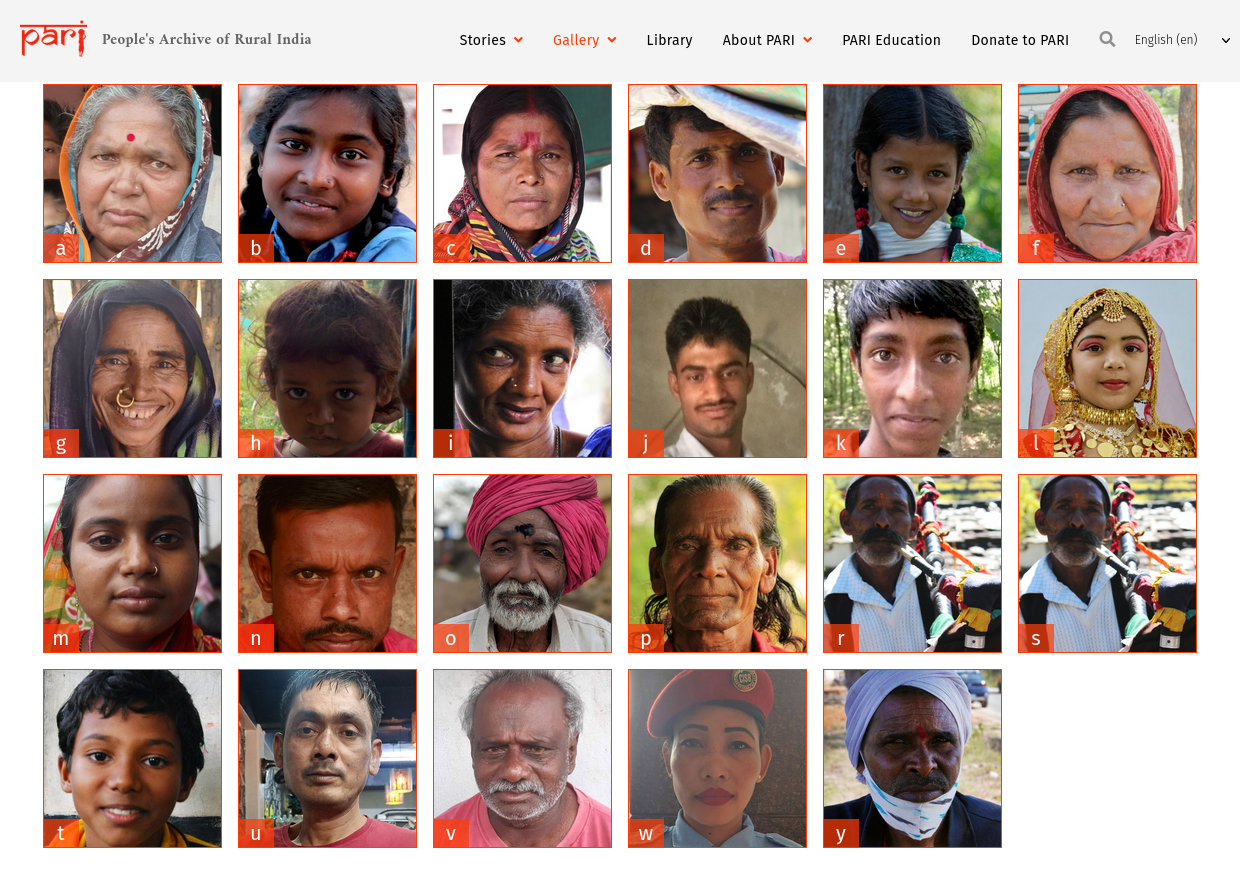
Other Voices March 3, 2024 |
Drowning in a Sea of Lies There are other words for it, of course. Narrative Control. Message Management. PR. Framing. Spin. Disinformation. Media Bias. Hasbara. Corporate Communications. Mainstream Journalism. Propaganda. But plainly put, it’s Lies, Lies, and more Lies. Lies are the lifeblood of the world we live in. The American-dominated international order is rooted in violence and exploitation, but lies are its language, its public face, and its spiritual essence. |
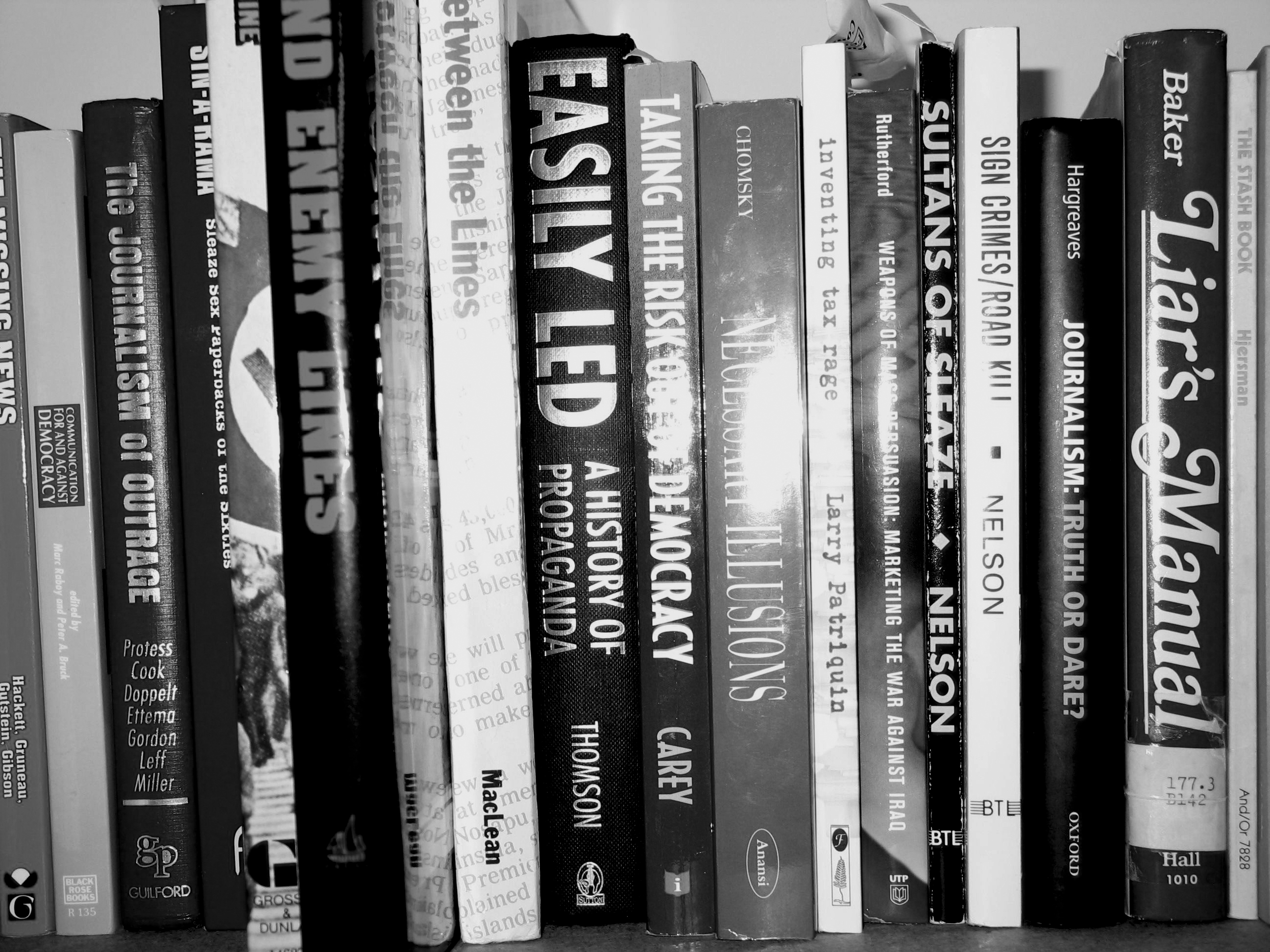
Other Voices January 7, 2024 |
Bearing Witness Other Voices presents gives voice to those who brings us important stories from the past, as well as reports and analysis of what is happening in the world right now. We tell about a website devoted to preserving the testimonies of Roma and Sinti in the Second World War, about a book about the “last heroes” of India's independence movement, and we continue to shine light on the horrors which Israel is inflicting on the people of Gaza. Chris Hedges looks at mass struggles earlier in this century, and asks the question: Why do mass movements fail? |

Other Voices December 2, 2023 |
Toward the light In the northern hemisphere, the approach of the Winter Solstice brings the darkest days of the year. This year, we are experiencing not only the long nights associated with the earth’s annual dance with the sun, but a deeper and more tragic darkness arising from the inhuman actions of some of our fellow humans. We live in a world where the most powerful states not only refuse to condemn genocide, but actively condone it. Most of us no longer celebrate the ancient Solstice festivals, but many of us – countless thousands – have been asserting our own desire and determination to create light in the darkness by going out into the streets and making our voices heard. |

Other Voices November 4, 2023 |
Dehumanization and humanity The newsletter is about Gaza, which at this time (November 2023) is being subjected to a genocidal attack by Israel. The mainstream media report on world events as if history started last week. Hamas’ break-out from the Gaza ghetto in which Israel has imprisoned the people of Gaza for the last 16 years, is reported as if it was inexplicable. The daily humiliations and restrictions imposed on Palestinians by the apartheid state that has ruled their lives for decades are ignored or brushed aside, as is the intensification of settler violence in the West Bank, where almost-daily pogroms are now a reality of Palestinians’ lives. To provide context, this issue of Other Voices looks at the history of Israel’s blockade and Israeli violence against Gaza, presenting articles that appeared on the Connexions website over the past 16 years. We hope they will help to counter the historical amnesia fostered by the mainstream media. |

Other Voices October 14, 2023 |
Fading to Silence? Fading to silence, as well as the more active and deliberate silencing of dissenting views, is the theme of this issue. The limits of permissible expression are shrinking dramatically. In the “Western” world the illusions of liberal democracy and free speech still persist to a degree (albeit among a shrinking proportion of the population) thanks to the never-ending monologue of self-praise of the mass media and other institutions of narrative control. Meanwhile the major social media and search platforms have become extremely adept at disappearing alternative points of view simply by adjusting their algorithms. Over the past number of years, left-wing websites have witnessed dramatic drops in the number of people who visit their sites as the articles they publish disappear from search engine results and social media. |
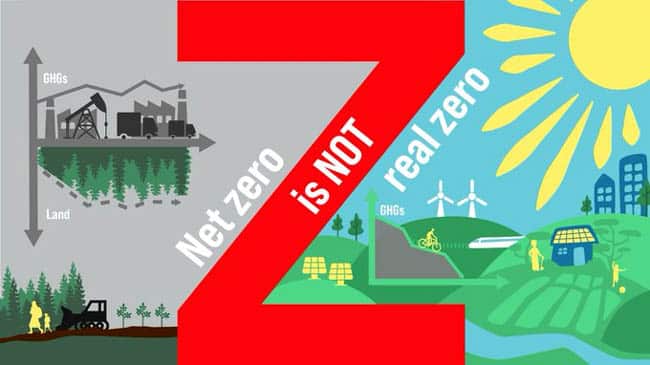
Other Voices November 13, 2021 |
Following the Science? “Following the science” has been the mantra of public officials from the very beginning of the pandemic. But what does “following the science” actually mean? When we as a society are faced with difficult policy choices, can science tell us what choices we should make? We should be sceptical of anyone who says that it can, because that isn’t actually what science does. |

Other Voices October 13, 2021 |
Light and darkness The featured book is this issue of Other Voices is Diana Johnstone’s memoir Circle in the Darkness. The title is inspired by Albert Einstein’s observation “as our circle of knowledge expands, so does the circumference of darkness surrounding it.” As Einstein, and Johnstone, remind us, the more we learn, the more we realize how little we know. Each question we answer opens the door to more questions: there are always more questions than answers. We are called upon to attempt to answer at least a few of the questions that seem important to us, but we do well to keep in mind that our answers are tentative and incomplete, always subject to revision in the light of further investigation. It can be difficult to remain critical, and self-critical, but self-righteousness and absolute certainty, no matter how emotionally satisfying they may be, only do harm, to ourselves, and to those we interact with. |

Other Voices February 14, 2021 |
Beyond the Walls Here we are. It’s the middle of February, and we’re still in the midst lockdowns and alarms, missing our normal lives. We could probably all use some sunshine and some cheering up, and surely Other Voices is up to the challenge of providing that? Absolutely. Just for starters, you’ll find four items about Gaza and Palestinians in this issue. Gaza? Yes, Gaza. Gaza has sunshine, as well as its share of beauty, humour, and giggling children playing in the rubble. As Zainab Wael Bahseer writes in Gaza City, an unusual beauty, by carrying on with eyes and ears open, “we teach life.” |

Other Voices May 14, 2020 |
Thinking Clearly in a Time of Crisis The COVID-19 pandemic has disrupted our world. Many of us feel some degree of disorientation and uncertainty. Important choices lie ahead, so it is vital that we think clearly, ask questions, discuss with others, and make our voices heard. There is little chance the COVID-19 virus will disappear in the near future. It is highly contagious, and exists in many different countries, meaning it will almost certainly continue to spread from one place to another. There are no islands of refuge in a globalized world. So one way or another we have to live with it – and with other pandemics that almost certainly lie in our future. What can we do to lessen to reduce the circumstances which breed these novel viruses? Industrial agriculture, and livestock operations in particular, are driving the emergence of new and extremely dangerous diseases. The global supply chain spreads them very effectively. The need to change the fundamentals of our economic system is urgent. |

Other Voices March 19, 2020 |
Morality in an Amoral World A crisis is a mirror. It shows us – if we have the courage to see – who we are as individuals and as a society. The self-congratulatory poses of governments, politicians, and state institutions are confronted with the harsh test of reality. Each of us – as individuals, friends, families, neighbours, communities – face new and sometimes difficult challenges. The novel coronavirus COVID-19 is such a crisis. |

Other Voices February 18, 2020 |
Taking a Stand Psychologists call it cognitive dissonance. George Orwell called it double-think. Some of us might call it organized hypocrisy. Call it what you will, it surrounds us. The government proclaims its commitment to ‘reconciliation’ with indigenous people, and says that its relationship with them is its most important relationship. At the same time the RCMP, following an order by a colonial court, invades unceded indigenous land and arrests people for occupying their own land. Governments mouth platitudes about the importance they place on dealing with the climate emergency while at the same time they build new pipelines and approve massive new tarsands projects. All this is business as usual. Fortunately many people across the country, and around the world, are saying no. They are taking a stand and disrupting business as usual. |
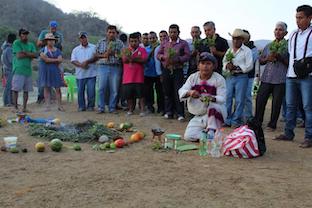
Other Voices December 15, 2019 |
Faith, Hope and Persistence When we look at what is happening in our world, it can be difficult to believe that there are grounds for hope, let alone faith. And yet we – we humans – continue to live and act in ways that testify to our hopes, and to our faith in the possibility of a better future. We plant gardens and trees, we have children, and we resist injustice and act to protect the planet we share. Hope is about possibility, not certainty. Even when we know that we are rowing against the tide, as we often are, we know that the future is not preordained. We know the future is shaped by human actions, and so we act. And we hope that our actions will help to steer the future in the direction we want to go in. |
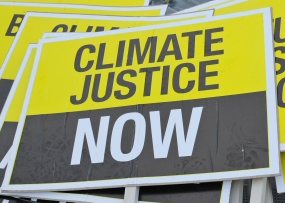
Other Voices October 27, 2019 |
What Next? Millions of us, in many different countries, came out in late September to demand action on the climate crisis. Around the world, in diverse ways, we are working to keep up the pressure. Time is short, and the tasks are huge. In the midst of our activism and organizing, we need to keep asking ourselves some important questions: What are our goals? And what should we do to reach our goals? While mass protests can be energizing while they happen, their momentum can be difficult to sustain unless we are able to convert them into ongoing organizing. To keep moving forward, we have to find ways of working together to create a counter-power to challenge capitalist system, including the political structures and institutions that sustain it. |

Other Voices June 10, 2018 |
Massacres and Morality In the wake of Israel’s brutal massacres of Palestinian protestors in Gaza, Other Voices looks at the ways in which state terrorism is used to keep subjugated populations in line, at home or abroad. The issue also questions the morality of those who either support, or keep silent about, the violence of the oppressor. What can one say about the morality of Israeli soldiers who shoot unarmed protestors, and then are caught on camera cheering their kills? And how do we judge the civilian population of Israel, many of whom openly support and cheer their soldiers as they go about their work of killing Palestinians? And what can we say about the political leaders of other countries, like Canada, who sit down and smile and make deals with Israel’s murdererous regime at the very moment that the killing is going on? |

Other Voices April 21, 2018 |
Their Internet or Ours? What happened to the Internet? The Internet, which was at one time a free and open space for sharing information and ideas, has been privatized and twisted to serve the profit-making agenda of huge corporations, working hand-in-glove with governments which want to suppress opposition and alternatives. What can we do about it? Is it our Internet or theirs? |

Other Voices March 25, 2018 |
Looking for answers, creating alternatives This issue of Other Voices features people who are questioning and challenging the way the world works and trying to create better alternatives. Phyllis Omido, a courageous environmental activist in Kenya who faced arrest and physical intimidation, has led a successful campaign to force a lead-smelting company that was poisoning residents to shut down. Judith Deutsch reviews Norman Finkelstein’s new book on Gaza. She asks: why are states and corporations assumed to have a “right to exist” but people – specifically, in this case, the people of Gaza – are not said to have a right to exist? Bruce Lesnick asks what is the best way to organize against the mobilizations of the right. Most crucially, he asks, “how can we best harness the power of the 99% – the working class majority – in this ideological, social and economic battle?” |

Other Voices February 17, 2018 |
Hearts and Minds: How Do People Change? If we want to change the world, we need other people – millions, eventually hundreds of millions of others – to agree that the world needs changing and to join us in changing it. It’s a daunting prospect. How can we reach and persuade those who may have voted for the likes of Donald Trump and those like him in other countries, or who are not interested in engaging in ‘politics’ at all? How can we reach the millions we need to reach and engage if fundamental change is to happen? How can we accomplish the essential task of persuading a majority of the population that a fundamental social and economic transformation is necessary? |

Other Voices January 21, 2018 |
What are we eating? What are we eating? A simple question which opens up a labyrinth of devilishly complex issues about production and distribution, access to land, control of water, prices, health and safety, migrant labour, and much else. For millions of people, the answer is brutally simple: not enough to survive. UNICEF estimates that 300 million children go to bed hungry each night, and that more than 8,000 children under the age of five die of malnutrition every day. The UN’s Food and Agriculture Organization (FAO) estimates that 12% of the world’s population is chronically malnourished. How is this possible in a world where there is an enormous surplus of food, where farmers are paid not to grow food? A short answer is that food production and distribution are driven by the need to make profits, rather than by human needs. |

Other Voices December 17, 2017 |
Collective Memory and Cultural Amnesia Our society is obsessed with the short-term present. It devalues memories and the past. Capitalism’s ceaseless enterprise of social engineering works best if people can be made to forget that things once were different. Collective memories of unionized jobs with benefits, air you could breathe and water you could drink without being poisoned, times when you could live your life without being spied on by the government and the corporations – such memories are dangerous. It’s best if people forget that such things ever existed. Even more dangerous are collective memories of resistance – times when people got together, and fought for their rights, sometimes winning, sometimes losing. The very idea that things were different in the past, and could be different in the future, is perilous because it gives people dangerous ideas. |

Other Voices November 11, 2017 |
Left Parties In recent years, there have been repeated attempts to build left political parties and coalitions, i.e. parties to the left of the established social democratic parties which have long become part of the neoliberal capitalist mainstream. Left parties have emerged out of mass movements in countries like Spain (Podemos), Germany (Die Linke), and Greece (Syriza). In Latin America, in the last two decades, left movements or parties have formed governments in Venezuela, Bolivia, Brazil, and Uruguay. What these new left parties/movements have in common is a strategy of engaging in grassroots organizing and also running in elections. They all describe themselves as socialist, though in many cases their programs are more reminiscent of what social democrats used to advocate decades ago: reforms that would tame and manage capitalism rather than abolish it. Their ultimate vision may be a world without capitalism, but their immediate proposals are more modest and incremental, though still significantly to the left of the neo-liberal consensus. |

Other Voices October 9, 2017 |
Meeting the Challenge of the Right The Right is not a unified political force or organization, but rather a label used to describe a disparate collection of ideologies, parties, groups, and individuals. With millions of people unemployed or working in marginal precarious jobs, desperation and hopelessness is leading some to listen to right-wing demagogues who offer scapegoats – usually immigrants or other minorities – or who divert their attention to social ‘evils’ such as abortion, homosexuality, and sex education. These far-right parties in fact have no real solutions to offer, but they pose a very real danger to those they target as scapegoats. Further still to the right are a wide variety of groups and movements that openly flaunt racist and Nazi symbols and rhetoric. Challenging the Right requires not only anti-fascist actions in the street, but organizing to reach those who may be attracted the the appeal of the Right and offering an alternative social vision. |

Other Voices August 28, 2017 |
Official Enemies We are never left in any doubt about who our enemies are. The word goes out from the United States that a certain country is a dictatorship which abuses human rights, supports terrorism, and poses a terrible threat to the world. The mainstream media then swing into action with military precision and flood us with stories, images, and commentary about how dreadful country ‘X’ is. The U.S. and its client states – also known as its ‘NATO allies’ – then move into action with a standard package of sanctions and forms of pressure, which may include economic warfare, military threats, and measures to lay the groundwork for a coup via clandestine contacts with opposition leaders and those elements of the military command who have been on the CIA payroll for years. When regime change is the goal, any method, from buying an election to military invasion, is acceptable. |

Other Voices July 22, 2017 |
Secrey and Power: It is one of the essential attributes of power that it insists on secrecy. Or, more precisely, those who wield power over others routinely claim that the details of what they do, and why they do it, are far too sensitive to be revealed to the public. The decisions they take, the discussions they have, the information they consider, the lobbyists who influenced them: all this must remain behind closed doors. Terrible (though unspecified) calamities would result if their jealously guarded secrets were to be revealed. Secrecy is an important weapon used by the state and other wielders of power against the public they ostensibly serve. Whereas everything that every member of the public does must be subject to surveillance by those in power, everything important done by those in power must remain a secret. |

Other Voices June 26, 2017 |
Public Safety In the June 26 issue of Other Voices we look at how public safety is being sacrificed by governments cutting costs and corporations pursuing profits. It is becoming increasingly clear that we have been witnessing a drastic rolling back of the systems and structures which Western societies developed over the past century or more to safeguard public health and safety. Politicians and business leaders, permeated with free-market ideology, have been jettisoning, with little thought or understanding of the consequences, the apparatus previous generations built, piece by piece, to mitigate the most dangerous aspects of industrial civilization. Systems which were established to protect public health have been deliberately dismantled by governments driven by a fanatical hatred of the public sector, in the name of eliminating ‘red tape.’ |

Other Voices May 28, 2017 |
Resisting Injustice: In this issue, we look at the relentless persistence of people challenging injustice and entrenched power in places around the world, including Palestine, Korea, China, Canada, and the United States. We spotlight the ongoing hunger strike by Palestinian political prisoners languishing in Israeli prisons, workers’ strikes in China, and people in South Korea taking on a corrupt government. In the United States, the Equal Justice Initiative is collecting soil from places where blacks were lynched as a way of remembering their lives and the brutally racist society that murdered them. An article on recent terrorist attacks in Britain asks what underlies ideological violence and sociopathic rage. Ralph Nader asks why people who are supposed to be professional questioners avoid asking hard questions of those in power. |

Other Voices April 30, 2017 |
Affirming life, resisting war, reporting UFOs What do we do when those in power recklessly put the future of the entire planet at risk with their acts of aggression and military provocations, while they ignore the growing disaster of climate change? We fight back and organize, on every level, wherever we are, doing whatever offers the hope of resisting and of building a movement that can stop and overturn the out-of-control monster of late capitalism. |

Other Voices April 1, 2017 |
April 1 issue Other Voices always strives to present you with alternative views on important topics. This issue offers some really alternative perspectives and even some “alternative facts.” As always, read critically - and enjoy. |
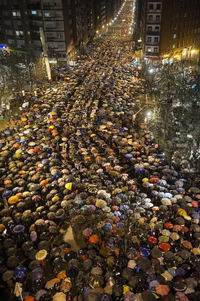
Other Voices March 18, 2017 |
Public Transit: Public transit – good affordable public transit – is key to a liveable city. Around the world, there are movements of transit riders fighting for better public transit. A key perspective guiding many of these struggles is the idea that transit should be free, that is, paid for not by fares, but out of general revenues. This is how roads are normally funded: their construction and maintenance are paid for by taxes, rarely by user fees. Free public transit by itself would not be enough, however. We also need good transit, transit that runs frequently and goes where people want to go. It also needs to be pleasant and safe. This requires substantial new investment. |

Other Voices February 12, 2017 |
Race and Class: Class conflict – first and foremost, the relationship between the capitalist class and the working class – is the fundamental contradiction that defines capitalist society. Class is a reality which simultaneously encompasses and collides with other dimensions of oppression and domination, such as gender and race. In the 20th century, Communists and Trotskyists in particular stressed the central importance of challenging racism in order to build a united working class movement. In the last few years, this insight has been carried forward by other social movements. The concept of ‘intersectionality’ has recently come into vogue in some circles, though others argue that ‘intersectionality’ is actually a step backward in that it assumes that there are separate ‘identities’ that ‘intersect’, an approach which can end up seeing the differences but missing the whole. |

Other Voices January 22, 2017 |
Disobedience:
Ultimately all power structures depend on the obedience of those over whom they rule. It helps if people believe in the legitimacy of those who wield power, but the crucial thing is obedience. Once people start to disobey in significant numbers, the dynamic of power changes fundamentally. Disobedience, especially on a large scale, shakes the power of the rulers, and increases the power of those who disobey. Given the nature of state power, the most threatening form of disobedience is the refusal of soldiers to obey orders. In this issue, this is the form of disobedience we focus on. When soldiers begin question the orders they are given and start regarding the authority of those who give those orders as illegitimate, the military hierarchy, and ultimately the state itself, are threatened. |

Other Voices December 20, 2016 |
“Fake news” is the latest mania to convulse the mainstream media. All at once, we’re being subjected to an outbreak of hand-wringing reports about obscure websites which are supposedly poisoning public opinion and undermining democracy by spreading “fake news.” Since we don’t like to be left out when a new fad comes on the scene, Other Voices is jumping on “fake news” bandwagon too. Our focus, however, is not so much on the crackpots and trolls making mischief on the fringes, but on the dominant actors in the fake news business: governments and the corporate and state media. |

Other Voices November 27, 2016 |
Alternative Media: A special issue devoted to alternative media. The Internet has made it possible to launch a vast number of alternative media projects. These range from bloggers, tweeters, Facebook commentators, and other self-publishers active in the social media realm, to major information-rich websites and media projects with paid staff and professional standards. Just what are “alternative media”? The rough-and-ready definition used in selecting media to feature in this issue of Other Voices is that they are independent and that they are broadly left in their political orientation, that is, that they offer a left alternative to the mainstream media. |

Other Voices November 7, 2016 |
Depression and Joy: It’s a difficult thing to measure, but there are strong reasons for believing that the number of people struggling with depression has increased significantly in recent decades. Despite the evidence that this is a social problem, not merely an individual misfortune, the solutions and escapes on offer are almost all individual: pharmaceuticals and therapy, on the one hand; self-medication with alcohol, streets drugs, television, etc., on the other. Certainly there are individual circumstances and individual causes, but when millions of people are experiencing the same thing, we need to look not only at the individual, but also at the society. Many of us feel powerless in the face of economic decline, a burgeoning police state, a ruling class willing to risk all-out war to increase its wealth and power, and the growing likelihood of environmental catastrophe. Many of us also struggle to bring about a radical change of direction, but you’d have to be oblivious to reality to wake up each morning feeling cheerful and optimistic. |

Other Voices October 15, 2016 |
Lurching to War: There was a moment, after the long nightmare of the Cold War ended a quarter of a century ago, when it seemed as if the danger of war had finally diminished. To be sure, there has never been a moment in all those years when wars weren’t raging somewhere, but at least the possibility of nuclear war seemed less. Foolish optimism. The risk of nuclear war is as great now as it was at the height of the Cold War. From the time the Warsaw Pact dissolved itself and the Soviet Union collapsed, the United States has single-mindedly pursued a hyper-aggressive strategy of surrounding Russia with hostile military forces and missiles aimed at the Russian heartland. The long-term goal is to bring about the collapse and dismemberment of the Russian federation, with the pieces that emerge subsequently turned into U.S. client states that provide raw materials but don’t compete with American corporations or America’s military. |

Other Voices September 10, 2016 |
Back to School: In this issue of Other Voices, we explore a few of the ways in which education and educational institutions are changing. We also look at ways in which education is used to bring about change. George Monbiot shares his concerns about how children's lives are increasingly lived indoors or looking at screens, while their experience of nature and the outdoors - once a significant part of children's lives - is shrinking. David Stratman casts a very critical eye on the so-called education reform movement that is transforming public education in the United States, Britain, and other countries. Another article looks at the devastating effects of the privatization of public education, specifically via charter schools. The widening gap between scholars working in academic institutions is the subject of two articles, "Academics can change the world -- if they stop talking only to their peers", and another by the late Ellen Meiksins Wood on The Retreat of the Intellectuals. |

Other Voices August 13, 2016 |
Sports and Politics: Sports in general, and the Olympics in particular, have never been free of politics. In the modern sports era, survival and success depend largely on the favour of corporations, whose power to provide or withhold funding and sponsorships now shape every aspect of sport, including athletes' incomes and lifestyles. The corporate conquest of sports closely parallels the corporate colonization of nearly all aspects of modern life. Accompanying this in recent years has been the increasing injection of militaristic content into sports spectacles. In Canada, hockey games are now commonly preceded by rituals honouring militarism. In the United States, similar spectacles have been staged for years. In this issue, we feature resources which remind us that resistance to the commercialization, corporatization, and militarization of sports is also part of our heritage. |

Other Voices July 23, 2016 |
Workers and Climate Change: Working people are affected by climate change in every aspect of our lives. As climate change worsens, our lives will worsen. If we are successful in bringing about the needed rapid change away from a fossil fuel based economy, working people are the ones who stand to bear most of the costs, including the cost, for millions of workers and their families, of losing their jobs. Many elements of the environmental movement have been guilty of ignoring working people, while others actually blame ordinary working people for climate change and the injustices associated with it. Yet it is working people who are dying, in many places, even now, from excessive heat in factories, fields, construction sites, and homes. And million of working people stand to lose their jobs, homes, and communities in the transition to a low-carbon or no-carbon economy. It is rare for groups involved in the climate change movement to acknowledge this reality, let alone to develop plans for a just transition to a new economy. |

Other Voices July 2, 2016 |
Brexit, the British vote to leave the European Union, has thrown the political elites into turmoil and confusion. The referendum was supposed to be a safe political manoeuvre, a way to produce an appearance of democratic legitimacy for the profoundly undemocratic structures of the EU. The gambit turned out to be a spectacular miscalculation, as millions of people turned out to express their opposition to a state of affairs that is leaving the majority worse off while enriching a small minority. This issue of Other Voices looks at the Brexit referendum, elite loathing for democracy, and the related attempt to get rid of Labour's leftwing leader, Jeremy Corbyn. |

Other Voices June 18, 2016 |
The topic of the week is homophobia, the hate that led to 49 deaths in Orlando last week, but which is present in greater or lesser form in every part of the world. We are always concerned, not only with what is wrong with the world, but what to do about it. This issue carries an excerpt from Umair Mohammed’s book ‘Confronting Injustice: Social Activism in the Age of Individualism’ in which he warns against the pitfalls of individualist and consumer-oriented approaches and argues in favour of collective action to build an effective movement. Derrick Jensen considers some arguments in favour of pacifism and finds them wanting. He agrees that creative approaches to social change can oftentimes make violence unnecessary, but that sometimes violence is a necessary response to violence. Another article looks at the decline of liberation theology, targeted as a threat by both the Vatican and secular power structures. |

Other Voices May 21, 2016 |
The theme of this issue is Tax Evasion. The essence of the capitalist economic system is the drive to accumulate as much as possible, by any means possible. It is almost inevitable, therefore, that those – individuals or corporations – whose existence revolves around accumulating capital will seek to avoid paying taxes. The best way to avoid paying taxes, when you’re rich and powerful, is to shape and write the tax laws. And indeed tax laws are almost invariably written to favour those whose wealth derives from profits and investment. For example, capital gains – income from investments – are either taxed at a much lower rate than wages, or not taxed at all. Even so, this isn’t enough for the superrich. Employing a network of accountants, tax lawyers, corporate shells, tax havens, secret bank accounts, and other methods, the 1% have become extremely adept at evading even the low rates of taxation they are subjected to. |

Other Voices May 7, 2016 |
When governments get too far out of line – the most outrageous offence, from the point of view of imperial power, is pursuing policies that help ordinary people at the expense of transnational corporations and local elites – then they have to be overthrown. The preferred method is a destabilization campaign followed by a coup. The goal is to overthrow an elected government without having to resort to direct outside military intervention. In recent years, the preferred means have been massive funding of conservative middle-class political parties, groups, and media, and 'constitutional coups.' A constitutional coup is a means of nullifying an undesirable election result by making use of the levers of judicial and executive power to get rid of a leader or government who has too much popular support to defeat via the ballot box. |

Other Voices April 23, 2016 |
Science and its enemies. education in the sciences, are crucial to our future. These public declarations are strangely reminiscent of the equally sincere lip service they pay to the ideals of democracy. And, in the same way that governments and private corporations devote considerable efforts to undermining the reality of democracy, so too they are frequently found trying to block and subvert science when the evidence it produces runs counter to their interests. Real live scientists doing real live science, it seems, are not nearly as loveable as Science in the abstract. In this issue, Other Voices looks at science, anti-science, and pseudoscience. |

Other Voices April 9, 2016 |
Our topic of the week is Corporate Crime. Corporations have increasingly become legally unaccountable for their behaviour. All too often corporations break the law and engage in criminals acts which would be severely punished if they were committed by ordinary individuals. These illegal acts range from deliberate health and safety violations that cost lives, to land seizures, to environmental negligence that contaminates lands and waters. Most of these illegal acts are never prosecuted, and those that are, are usually dealt with by a fine that corporations can treat as a cost of doing business. There are movements demanding that corporations be held accountable for their crimes in a serious way, and, specifically, that corporate executives should face jail time when the corporation they are in charge of engage in behaviour that causes death, injury, and illness. |

Other Voices March 26, 2016 |
For countless centuries, forests, and the trees in them, have been seen as sources of life, livelihood, and spiritual meaning. For capitalism, however, forests are sites of extraction and profit-making, or obstacles in the way of ‘development.’ In this issue, we look at some of the threats to forests worldwide, and the ways in which people are resisting and defending the forests. In the Amazon, tribal people are combining traditional skills with direct action and modern technology to fight against illegal logging. In India, villagers are organizing to protect their forests against being flooding by dams. In Palestine, farm families are staying on their land, and planting new trees to replace the ones destroyed by Israeli soldiers and settlers. In Mozambique, farmers and communities are organizing against land takeovers by foreign corporations. In the Organizing section, we look at the organizing work of Bonnie Phillips, a long-time forest defender. |
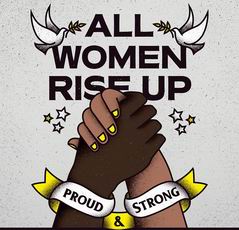
Other Voices March 5, 2016 |
In this issue of Other Voices, we mark International Women’s Day. An article written by Alexandra Kollontai in 1920 talks about the early history of this event, which grew out of a proposal put forward by Clara Zetkin at the 1910 International Conference of Working Women. A key focus at that time was winning the vote for women, with the slogan “The vote for women will unite our strength in the struggle for socialism”. The link between women’s rights and socialism became even clearer a few years later, in 1917, when a Women’s Day march in St. Petersburg turned into a revolutionary uprising which led to the overthrow of the Czar and the Russian Revolution. The struggle continues. Kavita Krishnan writes about the campaigns for women’s rights in India in “Women’s Liberation, Everyone’s Liberation.” “Women in Arms” compares women’s struggles in Chiapas, Mexico, and in Kurdistan. Johanna Brenner takes a global view in “Socialist Feminism in the 21st Century.” |
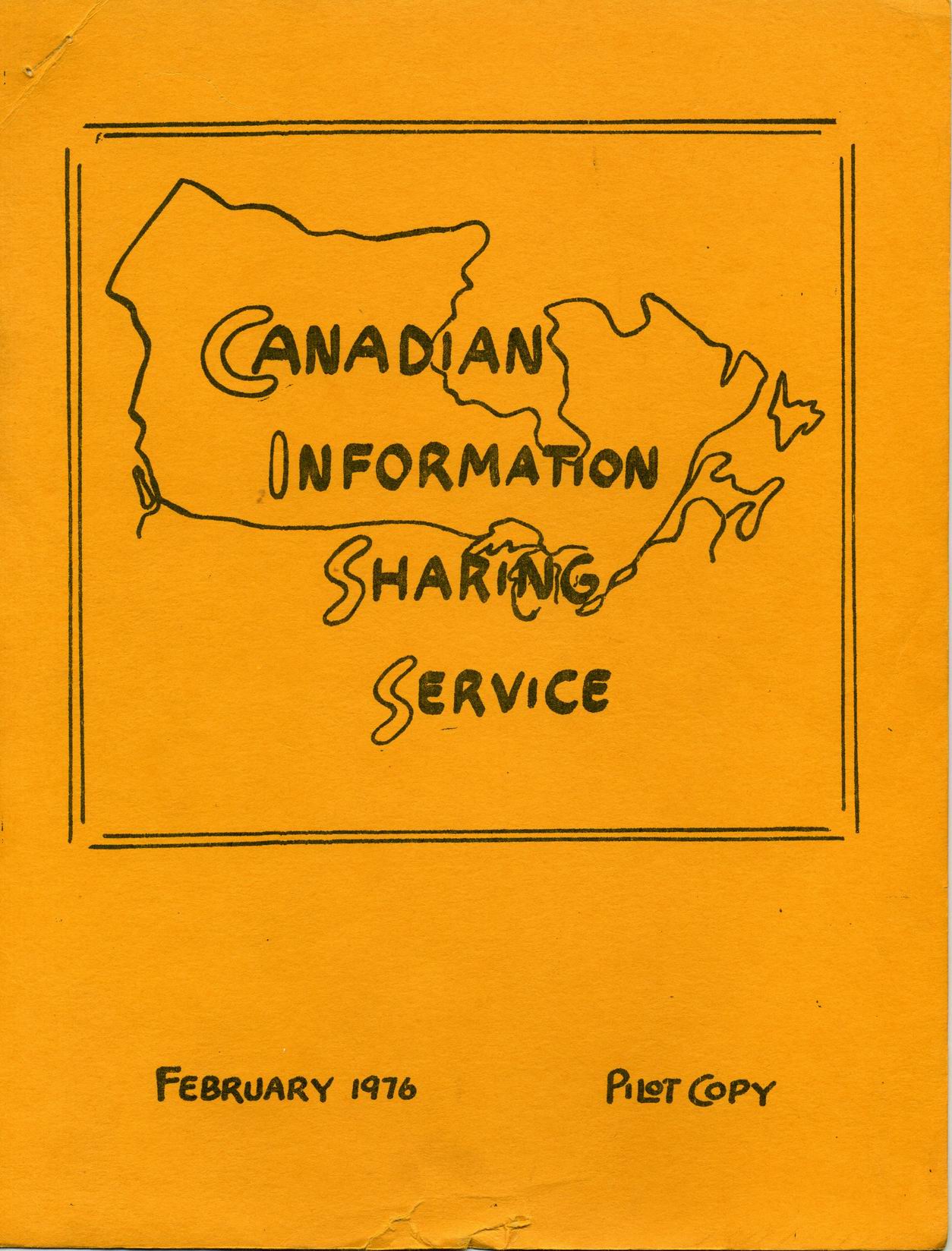
Other Voices February 20, 2016 |
Black History is the topic of the week. We look at the Haitian revolution, when slaves confronted the French empire and won; black resistance against the Ku Klux Klan in the American South, and the meaning and limits of anti-racism. This issue of Connexions Other Voices falls on the 40th anniversary of the publication of the very first Connexions newsletter, which was published in February 1976. That first issue carried the title “Canadian Information Sharing Service”, which was also the name of the collective which compiled it, from submissions from across Canada. As the Connexions project enters its fifth decade, we continue to carry on the original “information sharing” mission of connecting people working for justice with each other and with resources and information. Connexions also maintains the Connexions Archive, a physical archive of more than 100,000 documents spanning more than 50 years of grassroots activism. |

Other Voices January 30, 2016 |
This issue of Other Voices shines a light on the murky world of conflict of interest, the hidden reality that often underlies appearances of neutrality, objectivity, and due process. Conflicts of interest are inherent in capitalism, a system founded on the premise that the state and society should be subordinated to economic self-interest and the accumulation of private wealth. Scientists who are supposed to be studying the effects of GMOs are funded by agribusiness corporations. Doctors who receive money from pharmaceutical companies write articles promoting the drugs produced by those companies. Decisions about pipelines are made by regulators who have spent years working in the oil industry, and who will be heading back to jobs in the industry after their stint ’regulating‘ it. Politicians receive campaign funds from corporate lobbyists. |
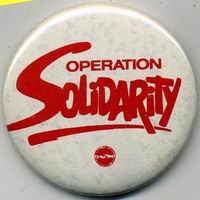
Other Voices Janaury 16, 2016 |
Working to change things for the better, fighting to prevent things from getting worse, remembering the past to illuminate possibilities for the future: as always, that is the focus of Other Voices. In this issue, we pay special attention to working class organizing. There can be no meaningful change without the active participation of the majority of the population: working people. Yet much activism ignores this obvious reality, while the organized labour union movement has put much of its reliance on 'professionals' who see organizing as a top-down technique rather than a grassroots movement. Several articles in this issue look at aspects of these issues. We also delve into the relationship between feminism and socialism, and look at the so-called 'sharing economy,' which produces increasingly exploited and precarious work, and immense profits for super-rich corporate owners. |
For older issues of Other Voices, click here.
For issues of the print publications published by Connexions (Connexions Digest, Connexions Annual, Canadian Information Sharing Service) see The Connexions Digest.
To read the introductions to Other Voices from July 2014 through 2021, click here (PDF).
Interested in current information and news about social justice resources, people’s history, and grassroots archives? Want it in one convenient package, sent directly into your inbox? Then subscribe to Connexions’ bi-weekly newsletter, Other Voices. With recent articles about issues affecting you and the world around you, updates on what new on Connexions.org and other social justice archives, Other Voices is a great source for finding out about social justice news and events.
To receive Others Voices please send an email headed “Subscribe” to mailroom [at] connexions [dot] org.



